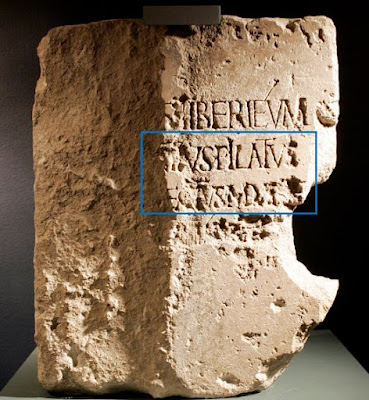Image #1: A great deal of detail is given with regard to numbers but if your aim is primarily reading then that is classified as a passive skill: our passive vocabulary is larger than our active vocabulary. We may recognise a word even though we might rarely, or possibly never use it in our own speech and writing. Therefore, the need is to identify the meaning of a number without necessarily becoming involved in declensions or being distracted by minor changes in spelling of related numbers.
trēs │ three
tredecim │ thirteen
duodētrīgintā │ twenty-eight [i.e. 2 from 30]
ūndētrīgintā │ twenty-nine [i.e. 1 from 30]
trīgintā │ thirty
trecentī │ three hundred
Focus on the “markers”, those parts of the word that
indicate [i] the teens [ii] multiples of ten and [iii] multiples of 100.
Image #2: Here are the five key pieces of information, the five
‘markers’ you need to “unlock” numbers:
-decim │ teens
-gīntī; -gintā │ multiples of ten
-centī; -gentī │ multiples of 100
duodē- │ two from the next number [i.e. number compounds ending in 8 e.g. 18, 28 etc.]
ūndē- │ one from the next number [i.e. number compounds ending in 9 e.g. 49, 79 etc.]
Apart from vīgintī (20), centum
(100) and mīlle (1000) all cardinal numbers in Latin beyond 10, are formed from
numbers 1 – 10.
Provided you know [a] those markers
and [b] the existence of ūn¦dē- and duo¦dē-, all other numbers
can be easily recognised despite variations in the spellings or when some
of those numbers decline.
When reading Latin don’t be
distracted by thinking about the spelling changes or why a number has a
particular ending but simply identify the number.
[1] teens: -decim
Base number + decim; the spellings of the base
numbers may change but the root is still clear
duo │ two > duo¦decim │ twelve
trēs │ three > tredecim │ thirteen
sedecim │ sixteen
Watch out for duodē- and ūndē- because they are used with
the next number to come:
duo¦dē¦vīgintī [ = 2 from 20] │ eighteen [i.e.
not 22]
ūn¦dē¦vīgintī [ = 1 from 20] │ nineteen [i.e. not
21]
[2] multiples of ten: -gīntī; -gintā
The number vīgintī (20;
Fr. vingt; It. venti; Sp. veinte; Port. vinte) itself cannot be deduced from
any other number. If you’re a coffee drinker, you may well have seen the
Italian word venti in coffee houses referring to a 20 ounce measure.
All the other multiples of ten are formed with a
recognisable base number + -gintā; again, spellings will change but the
base number is still identifiable, for example:
trīgintā │ thirty
quadrāgintā │ forty
duo¦dē¦quīnquāgintā [2 from 50] │ forty-eight
quīnquāgintā │ fifty
nōnāgintā │ ninety
ūn¦dē¦centum [1 from 100]│ ninety-nine
centum: like viginti, it has a unique form not from
any other number but, of course, evident in century and cents
[3] 100 and multiples of 100: -cent(ī); -gent(ī)
all the numbers in
the 100s are formed as multiples of cent(um) i.e. centī
or gentī; the multiples of 100 decline and the final -ī may change but
the markers -cent- and -gent- remain
The existence of
/g/ in both the multiples of ten and the multiples of 100 can cause a
misreading. Therefore, note carefully the vowel differences between:
[a] -gĪntī /
-gIntā: markers of multiples of ten; quadragIntā │ forty
[b] -cEntī / -gEntī : markers of multiples of 100; quadringEnti │ four
hundred
ducentī │
200
quadringentī │400
septingentī │700


























